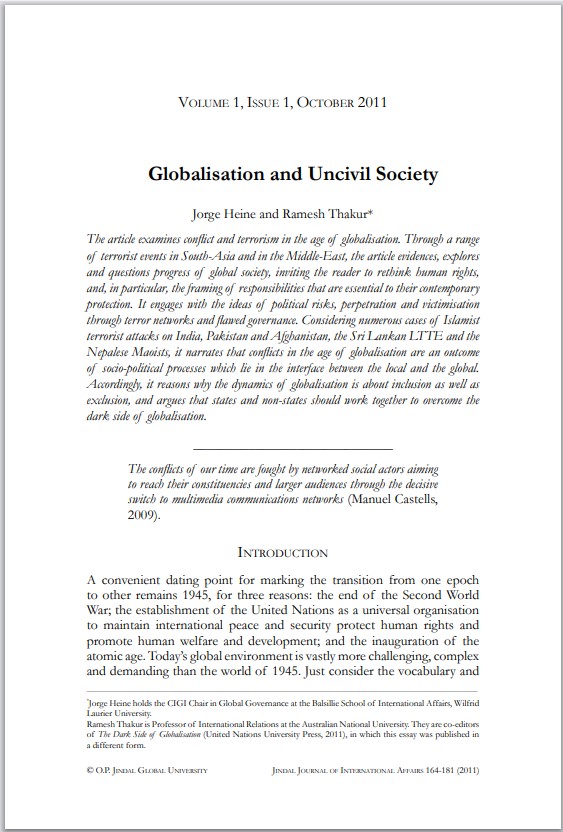Globalisation and Uncivil Society
DOI:
https://doi.org/10.54945/jjia.v1i1.14Abstract
The article examines conflict and terrorism in the age of globalisation. Through a range of terrorist events in South-Asia and in the Middle-East, the article evidences, explores and questions progress of global society, inviting the reader to rethink human rights, and, in particular, the framing of responsibilities that are essential to their contemporary protection. It engages with the ideas of political risks, perpetration and victimisation through terror networks and flawed governance. Considering numerous cases of Islamist terrorist attacks on India, Pakistan and Afghanistan, the Sri Lankan LTTE and the Nepalese Maoists, it narrates that conflicts in the age of globalisation are an outcome of socio-political processes which lie in the interface between the local and the global. Accordingly, it reasons why the dynamics of globalisation is about inclusion as well as exclusion, and argues that states and non-states should work together to overcome the dark side of globalisation.







